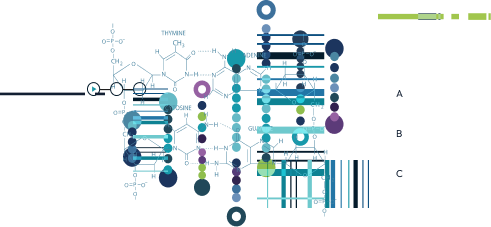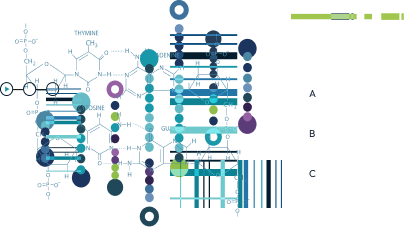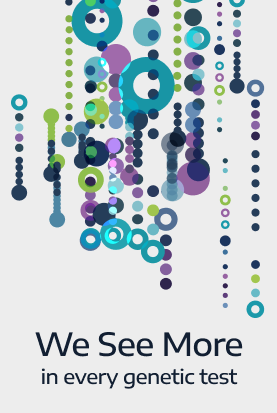Understand Your Baby's Genetic Make Up
One test, clear answers.
IriSight® provides the most comprehensive prenatal genetic testing available.

What is IriSight® prenatal testing?
IriSight® is a genetic test that analyzes your baby’s DNA, collected from amniotic fluid or chorionic villi*.
It identifies DNA changes that can affect your baby’s health and development, including:
- Chromosomal conditions like Down, Edward, and Turner syndromes
- Microdeletion disorders like DiGeorge syndrome
- Genetic disorders such as cystic fibrosis, Fragile X syndrome, and many more
*Amniocentesis or chorionic villus sampling (CVS) is sometimes recommended when ultrasound results are abnormal.

Why genetic testing is important
Knowing if there’s a genetic diagnosis impacting your baby’s development can change the way your healthcare team manages your pregnancy.
Prenatal genetic testing may:
- Inform the baby’s prognosis
- Identify targeted therapies before and after delivery
- Enable delivery planning to manage potential complications
- Connect you with supportive resources

IriSight® provides the most comprehensive testing
When it comes to genetic testing, technology matters.
Traditional prenatal testing often involves sequential tests that may miss crucial information. IriSight® uses whole genome sequencing to detect DNA changes in thousands of medically relevant genes. Alterations ranging in size from single base changes to entire chromosomal changes – all within a single test.
Our advanced technology ensures the most accurate and complete results available.

How it works
- Amniocentesis or CVS: Your healthcare provider will collect amniotic fluid or chorionic villi to obtain your baby’s DNA.
- IriSight® testing: Using cutting-edge whole genome sequencing, we analyze your baby’s DNA to detect genetic abnormalities.
- Fast results: Receive results within 8 to 11 days, empowering you with the knowledge you need.

Why choose IriSight®?
- One test replaces multiple sequential tests
- Get your results in just 8-11 days
- Simple insurance and self-pay options
- Peace of mind

Ask your doctor about IriSight®
Ask your doctor about IriSight® testing
Talking with your healthcare provider is the first step. Start a conversation using these questions:
- What type of genetic test is best for my baby?
- What genetic conditions can the test detect or miss?
- How accurate are the results?

FAQs
-
-
IriSight® is recommended if your healthcare provider suggests diagnostic genetic testing using amniocentesis or chorionic villus sampling (CVS). Or if you are generally interested in diagnostic testing for peace of mind.
-
IriSight® testing detects all of the chromosomal conditions and microdeletion disorders commonly tested for by other diagnostic tests. These include:
- Down syndrome (trisomy 21)
- Edward syndrome (trisomy 18)
- Patau syndrome (trisomy 13)
- Turner syndrome (monosomy X)
- DiGeorge syndrome
- Wolf-Hirschhorn syndrome
In addition, IriSight® detects genetic disorders caused by small sequence changes such as cystic fibrosis. As well as repeat expansions in FMR1 (which causes Fragile X syndrome) and other repeat expansions genes.
-
It depends on which sample type is preferred.
IriSight® testing can be ordered as soon as the 11th to 12th week of pregnancy when chorionic villus sampling (CVS) is used. Or during the 16th to 20th week of pregnancy when amniocentesis is typically used.
Your healthcare provider can explain more about CVS and amniocentesis procedures, including the best time during your pregnancy to perform them and risks associated with the procedure.
-
A test report is sent to your doctor within 8-11 days of receiving your sample.
-
Yes! IriSight® testing is covered by many insurances. For cases where insurance coverage is not available, we offer self-pay options.
-
IriSight® testing must be ordered by a healthcare provider.
If your healthcare provider needs assistance with obtaining test order forms, sample collection kits, etc, please contact us – we’re happy to help.
-
Ready to learn more?
Connect with a Clinical Coordinator to discuss IriSight® testing. We’re here to help you understand your options.
